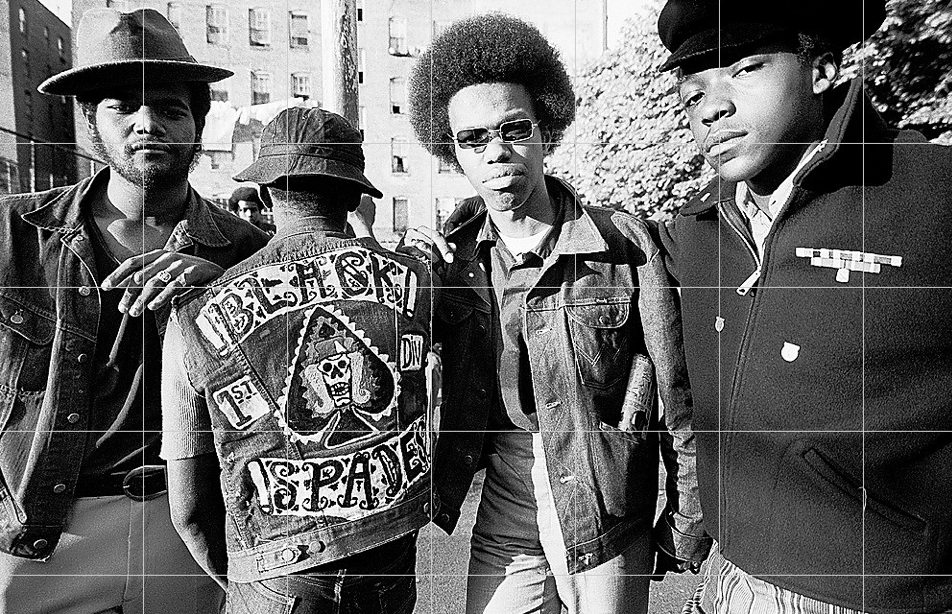The Black Spades hold a unique place in the annals of New York’s history, particularly in the Bronx. They emerged not just as a gang but as a symbol of resistance and identity in a borough plagued by economic and social upheaval. This article aims to explore their complex legacy, from their roots in street culture to their unexpected role in the birth of hip hop.
Formation and Influence
The Birth in Turmoil: The Black Spades rose from the ashes of the Bronx, a response to the neglect and chaos of the 1960s and 70s. Their formation was a direct consequence of the societal neglect, offering solidarity and protection in a landscape marked by poverty and racial tension.
A Symbol of Power: The Black Spades quickly grew in numbers and influence. They were more than a gang; they represented a fight against systemic oppression, providing a sense of empowerment to marginalized youth in the Bronx.
Leadership and Legacy
Key Figures and Ideologies: Afrika Bambaataa, Bam Bam, and Popmaster Fabel were not just leaders but visionaries who saw beyond the gang’s immediate realm. They infused the Black Spades with a sense of purpose that transcended typical gang activities, advocating for social justice and community unity.
The Legacy Beyond Streets: The leadership directed the gang towards a more constructive role, laying the foundation for what would later become the Zulu Nation. Their foresight and influence were crucial in steering the youth towards creative and social endeavors.
From Protection to Cultural Movement
Community Guardians: Originally formed for protection, the Black Spades became de facto guardians of their neighborhoods. They tackled issues like police brutality and racial injustice head-on, becoming a voice for the voiceless in the Bronx.
Evolving into a Cultural Phenomenon: The shift from a street gang to a cultural movement was gradual but profound. The Black Spades, particularly under the influence of Afrika Bambaataa, began embracing music and culture as tools for change, leading to the birth of the Zulu Nation.
Hip Hop and Cultural Revolution
The Birthplace of Hip Hop: The Black Spades were at the epicenter of the hip hop revolution. Their parties and gatherings became the breeding ground for what would become a global cultural phenomenon, with members like Afrika Bambaataa pioneering new sounds and styles.
Influence on Music and Culture: The impact of the Black Spades on hip hop was not just musical but also ideological. They imbued the genre with messages of unity, strength, and resistance, influencing generations of artists and fans alike.
Alliances and Rivalries
Complex Relationships: The Black Spades navigated a complex web of alliances and rivalries with other New York City gangs. Their interactions shaped the gang dynamics of the city and played a significant role in their own evolution.
The Ghetto Brothers Alliance: The merger with the Ghetto Brothers was a landmark event. It signified a unification of purpose among the Bronx gangs, leading to a decrease in gang violence and a concerted focus on social and cultural development.
The Black Spades in Popular Media
Representation in Media: The story of the Black Spades has been both glorified and vilified in popular media. While some narratives celebrate their role in community building and hip hop, others perpetuate stereotypes about gang culture.
The Dichotomy of Perception: The portrayal of the Black Spades in media reflects the broader societal views on gangs and marginalized communities. It underscores the complexities of their identity and the challenges in understanding their true impact and legacy.
Conclusion
The Black Spades’ journey, marked by resilience, transformation, and cultural innovation, offers a nuanced perspective on gang culture and its potential to drive social change. Their legacy continues to resonate in the streets of the Bronx and the global hip-hop community, serving as a testament to the power of unity and creativity in the face of adversity.



